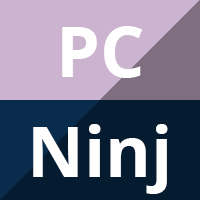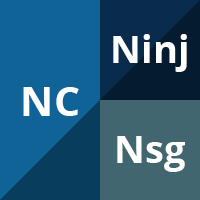
Elevation of the head during intensive care management in people with severe traumatic brain injury
Abstract Background Traumatic brain injury (TBI) is a major public health problem and a fundamental cause of morbidity and mortality worldwide. The burden of TBI disproportionately affects low- and middle-income countries. Intracranial hypertension is the most frequent cause of death and disability in brain-injured people. Special interventions in the intensive care unit are required to […]

Triage tools for detecting cervical spine injury in pediatric trauma patients
Abstract Background Pediatric cervical spine injury (CSI) after blunt trauma is rare. Nonetheless, missing these injuries can have severe consequences. To prevent the overuse of radiographic imaging, two clinical decision tools have been developed: The National Emergency X-Radiography Utilization Study (NEXUS) criteria and the Canadian C-spine Rule (CCR). Both tools are proven to be accurate […]

Interventions for managing skeletal muscle spasticity following traumatic brain injury
Abstract Background Skeletal muscle spasticity is a major physical complication resulting from traumatic brain injury (TBI), which can lead to muscle contracture, joint stiffness, reduced range of movement, broken skin and pain. Treatments for spasticity include a range of pharmacological and non-pharmacological interventions, often used in combination. Management of spasticity following TBI varies from other […]

Hypothermia for traumatic brain injury
Abstract Background Hypothermia has been used in the treatment of brain injury for many years. Encouraging results from small trials and laboratory studies led to renewed interest in the area and some larger trials. Objectives To determine the effect of mild hypothermia for traumatic brain injury (TBI) on mortality, long‐term functional outcomes and complications. Search […]

Cognitive rehabilitation for adults with traumatic brain injury to improve occupational outcomes
Abstract Background Cognitive impairment in people with traumatic brain injury (TBI) could affect multiple facets of their daily functioning. Cognitive rehabilitation brings about clinically significant improvement in certain cognitive skills. However, it is uncertain if these improved cognitive skills lead to betterments in other key aspects of daily living. We evaluated whether cognitive rehabilitation for […]

Interventions for dysarthria due to stroke and other adult-acquired, non-progressive brain injury
Abstract Background Dysarthria is an acquired speech disorder following neurological injury that reduces intelligibility of speech due to weak, imprecise, slow and/or unco-ordinated muscle control. The impact of dysarthria goes beyond communication and affects psychosocial functioning. This is an update of a review previously published in 2005. The scope has been broadened to include additional […]

Music therapy for acquired brain injury
Abstract Background Acquired brain injury (ABI) can result in impairments in motor function, language, cognition, and sensory processing, and in emotional disturbances, which can severely reduce a survivor’s quality of life. Music interventions have been used in rehabilitation to stimulate brain functions involved in movement, cognition, speech, emotions, and sensory perceptions. An update of the […]

Progesterone for acute traumatic brain injury
Abstract Background Traumatic brain injury (TBI) is a leading cause of death and disability, and the identification of effective, inexpensive and widely practicable treatments for brain injury is of great public health importance worldwide. Progesterone is a naturally produced hormone that has well‐defined pharmacokinetics, is widely available, inexpensive, and has steroidal, neuroactive and neurosteroidal actions […]

Technological aids for the rehabilitation of memory and executive functioning in children and adolescents with acquired brain injury
Abstract Background The use of technology in healthcare settings is on the increase and may represent a cost-effective means of delivering rehabilitation. Reductions in treatment time, and delivery in the home, are also thought to be benefits of this approach. Children and adolescents with brain injury often experience deficits in memory and executive functioning that […]

Multi-disciplinary rehabilitation for acquired brain injury in adults of working age
Abstract Background Evidence from systematic reviews demonstrates that multi-disciplinary rehabilitation is effective in the stroke population, in which older adults predominate. However, the evidence base for the effectiveness of rehabilitation following acquired brain injury (ABI) in younger adults has not been established, perhaps because this scenario presents different methodological challenges in research. Objectives To assess […]

